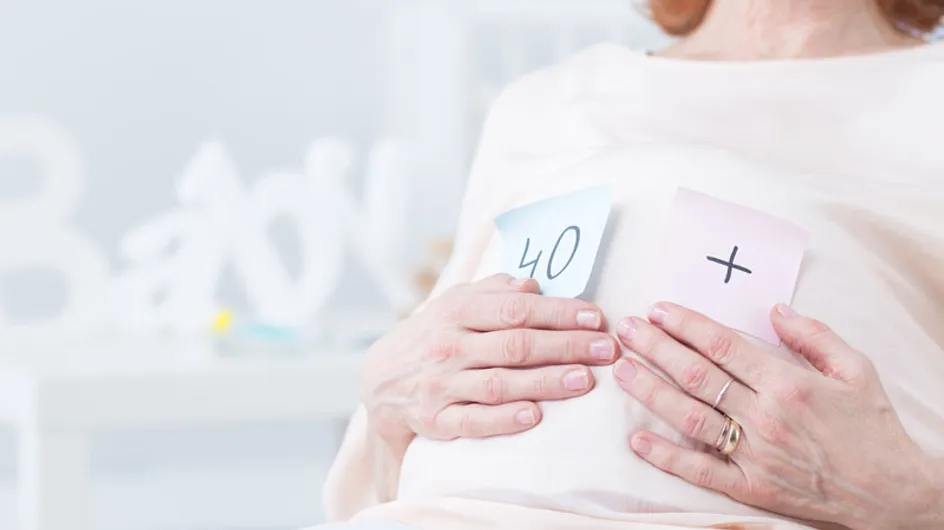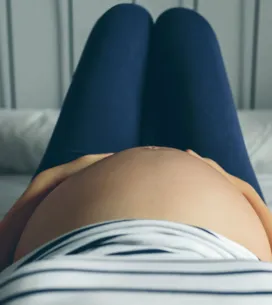Getting pregnant can be hard at the best of times but when you're over a certain age unfortunately things can get even harder.
If you and your partner have delayed having children until you are in your forties you are probably already aware that it's a bit more difficult to conceive but it's far from impossible. In fact the Guardian reported that the number of births to over 40s has increased by 15% in the past five years alone.
Fortunately with the advances in fertility treatments there are plenty of options availble to help you to conceive and start a family.
We spoke to Professor Geeta Nargund, Medical Director at Create Health, to find out all you need to know about getting pregnant after 40 so you can be as prepared as you need.
What are the risks?
Not to paint a bleak picture but naturally risks are heightened in pregnancies after the age of 40. However Geeta says: “If the woman is in good health, the additional risks are low in early 40s."
But there are still things to be aware of. A woman’s egg supply is naturally going to decrease as she ages and with the eggs that remain there is a heightened chance of chromosomal problems like Down's Syndrome, birth defects and miscarriage.
There are also additional problems for the mother like heart disease or high blood pressure that should be initially checked by your GP before you start to try to conceive.
Geeta recommends the best thing to do is to stay vigilant. "Regular monitoring in an antenatal clinic and good obstetric care are needed. Maternal age related risk of having a Down's Syndrome baby is higher. However, diagnosis of Down's Syndrome in pregnancy (11-13 weeks) is reliable and easily available on the NHS.”
What are the rates of success?
If you’re starting to worry that you’ll stick out like a sore-thumb in the antenatal classes don’t worry - more and more people are delaying motherhood - whatever the reason, the result is the same.
But there is no denying that the chances of getting pregnant naturally after the age of 40 significantly drop.
Statistics from Baby Centre show: “At 40 your chance of conceiving within a year of beginning to try is about 40 to 50 percent, compared to a woman in her mid-30s, who has a 75 percent chance. By age 43, a woman's chance of pregnancy plummets to 1 or 2 percent."
For this reason IVF is a very popular option. “It is very common for women over 40 to have fertility treatment, Dr’s say that after 45 it is very rare that a woman will get pregnant with her own eggs,” says Geeta, “The chance of having a baby per IVF cycle in women 40-42 years can be around 15%. It is around 5-10% for women between 43-44. After 44 years, it reduces to less than 5%."
But don’t be disheartened there is a much more positive picture that has only just come into play.The NHS National Guidelines for Health and Clinical Excellence (NICE) guidelines have just had a recent update from their 2004 requirements of IVF only allowing women up to the age of 39 to have the treatment on the NHS.
Now according to their website: "Under the updated recommendations, NICE says that under certain criteria, women aged between 40 and 42 years should be offered one full cycle of IVF with or without intracytoplasmic sperm, if they have not conceived after two years of regular unprotected intercourse, or 12 cycles of artificial insemination where six or more are by intrauterine insemination."
However, in older women and women with low egg reserve (high FSH or low AMH levels), Natural and Mild IVF can be more successful than conventional IVF.This isn’t just reserved for heterosexual couples success rates are higher in single women and lesbian couples with the use of donor sperm.
What are the options available to you?
- Single women and lesbian couples can try insemination with donor sperm as the first option if their fallopian tubes are open as long as their egg reserve is not too low.
- Natural IVF offers "drug-free" IVF with natural selection of eggs at a lower cost and with less side-effects and physical burden. Natural IVF can help even in situations where women are pre-menopausal or have very low egg reserve and where fertility drugs do not work. This is because a woman's naturally selected egg is collected from an ovulatory cycle which allows an embryo for transfer.
- Mild IVF uses fewer drugs (5-9 days only) in a woman's natural cycle with reduced side-effects and cost. These options are aimed at "quality and not quantity" of eggs and embryos.
- Conventional IVF with suppression of ovaries is another option but may not be necessary for women over 40 and in fact may lead to unnecessary use of high stimulation and reduced response and quality of eggs.
Are there things that you can do to boost your fertility?
The main thing that you can do to help boost conception is to make your body healthy.
Geeta says: “It is important to optimise your body weight and BMI. As well as this if you smoke, stop smoking and if you drink then reduce your alcohol intake.
You should take folic acid regularly and eat healthily - if you do so there is no need for additional supplements if your diet is healthy.”
Speak to your health professional or GP as soon as possible and they will advise you on the best course of action.















